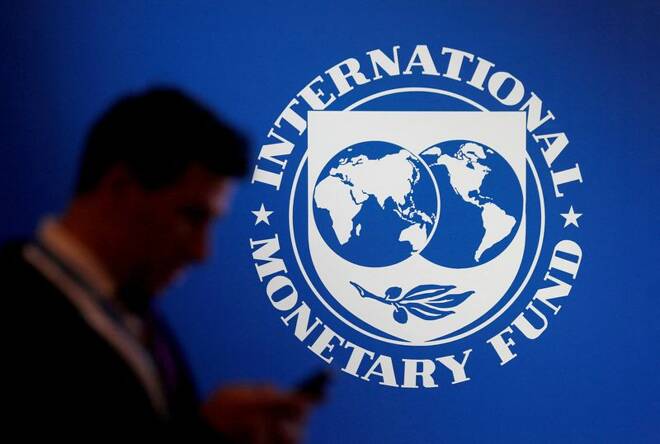Advertisement
Advertisement
Central banks should stick to ‘higher for longer’ interest rate approach – IMF
By:
(Reuters) - Global central banks need to make clear to financial markets the probable need for interest rates to remain higher for longer in order to bring inflation sustainably back down to target and avoid a rebound in price pressures, the International Monetary Fund said on Thursday.
By Lindsay Dunsmuir
(Reuters) -Global central banks need to make clear to financial markets the probable need for interest rates to remain higher for longer in order to bring inflation sustainably back down to target and avoid a rebound in price pressures, the International Monetary Fund said on Thursday.
The warning comes amid a significant easing in financial conditions since October as investors looked past the steep run up in interest rates by central banks last year designed to bring down an inflation rate that breached 6% in more than 80% of the world’s economies. Instead, as central bankers near a peak in their policy rates and inflation has begun to recede, investors have been betting on a quick pivot to rate cuts.
“Central banks should communicate the likely need to keep interest rates higher for longer until there is evidence that inflation — including wages and prices of services — has sustainably returned to the target,” the head of the IMF’s Monetary and Capital Markets Department, Tobias Adrian, and his two deputies wrote in a blog post.
“Loosening prematurely could risk a sharp resurgence in inflation once activity rebounds, leaving countries susceptible to further shocks which could de-anchor inflation expectations,” they added.
The disconnect was on show on Wednesday when the U.S. Federal Reserve raised its policy rate and Fed Chair Jerome Powell reiterated that the central bank does not plan to cut rates this year as it needs to see goods disinflation followed by marked progress in the services sector, which is forecast to take longer.
Investors ignored him, piling further into bets the Fed will cut rates this year while stocks rallied. The S&P 500 stock index has risen more than 7% this year and is up more than 15% from its low in mid October. A more comprehensive weekly measure of U.S. financial conditions tracked by the Chicago Fed shows they are currently looser-than-average by historical standards.
Financial markets elsewhere reacted in a similar way on Thursday when the European Central Bank and the Bank of England raised interest rates.
A premature easing in financial conditions is unwelcome for central banks, as it lowers the cost of borrowing at a time when rate setters are trying to keep it restrictive to dampen demand across their economies and bring inflation to heel.
The IMF said history shows high inflation is often persistent without “forceful and decisive” monetary policy actions and noted too that while goods inflation has swiftly abated the same progress is unlikely for the services sector without significant cooling in the labor market.
“Crucially, central banks must avoid misreading sharp declines in goods prices and easing policy before services inflation and wages, which adjust more slowly, have also moderated markedly,” the authors wrote. “It is critical for policymakers to remain resolute and focus on bringing inflation back to target without delay.”
(Reporting by Lindsay Dunsmuir; Editing by Chizu Nomiyama)
About the Author
Reuterscontributor
Reuters, the news and media division of Thomson Reuters, is the world’s largest international multimedia news provider reaching more than one billion people every day. Reuters provides trusted business, financial, national, and international news to professionals via Thomson Reuters desktops, the world's media organizations, and directly to consumers at Reuters.com and via Reuters TV. Learn more about Thomson Reuters products:
Latest news and analysis
Advertisement
